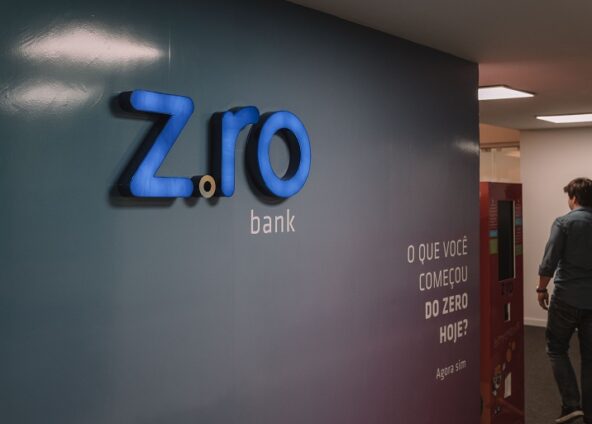A survey carried out by Sebrae showed that the level of innovation of small businesses made all the difference in the size of the economic impact caused by the new coronavirus pandemic. While 87% of conventional small businesses recorded a drop in revenue during the crisis, losses were less significant among essentially innovative companies (startups), where 68% of businesses experienced a loss of revenue. The same research showed that 13% of small innovative businesses managed to increase revenue despite the crisis. The result is much higher than the percentage found in the general universe of MSEs, where only 4% of companies had an increase in revenue.
The data is part of the online survey carried out by Sebrae, in partnership with Finep, between May 28th and June 3rd, with the participation of 833 startups. The survey also showed that, despite the negative impacts on business, innovative companies have greater capacity to reinvent themselves and therefore, 76% of them did not lay off employees, while 36% of traditional MSEs had to lay off employees.
Another positive difference between startups identified in the research was that they also created more jobs (16% of them hired employees). According to the state coordinator of startups at Sebrae/PR, Rafael Tortato, the research shows that innovation is an essential element for companies to overcome the crisis and startups bring this into their DNA.
“Startups are more adapted to digital processes and have prior knowledge of innovation. This makes it easier to offer products and services remotely and provide remote customer service, whether through proprietary apps or tools or simpler technologies like WhatsApp. Furthermore, the leaner structure with less costs also helps these companies at this time”, he highlights.
Since the beginning of the pandemic, the startup Cria, from Maringá, in the northwest of Paraná, has grown three times in revenue and number of customers. At the beginning of the year, there were 20 companies served, currently there are 60. The spin-off Collection, which was born from Cria, has also had impressive results, with the acquisition of more than 300 customers in recent months.
From partners Diogo Veluza Barros and Diego Locatelli Tadeu, Cria offers digital environments solutions mainly for finishing stores. Through the platform, store customers can view products in a virtual setting, without having to wait for a project. “When I had an architecture office, I noticed that most people didn’t have an architect. The tool works as a project in which it is possible to apply products available in the store to the environment”, explains Barros.
With the pandemic, the platform, which runs online, took off. This past June alone, 30 deals were closed with stores in various locations in Brazil. The Collection, which works as a virtual texture library for architects, with real products from the main brands on the market, has also required more work. Because of this, the Cria team, which previously consisted of five professionals, increased to nine. “Before the crisis, we faced more resistance from traditional businesses. In this context, companies need to adapt”, points out Barros.
The Curitiba startup CargON, which operates in the logistics area, has an application and a platform with driver databases, document scanning solutions, transport monitoring and information about cargo and trips for transport companies and industries.
According to the CEO, Dennys Mews, the company, which began its activities in March, had initial revenue slightly lower than projected, due to the drop in company revenues. But, according to him, CargON has shown growth over the months and increased the number of customers who have sought to digitize. It currently has 15 employees and is expected to continue growing.
“With the pandemic, many companies have sought to digitalize their processes to have more security in their transport, especially for outsourced and aggregated companies, in addition to reducing costs in a time of crisis. They seek to optimize their processes and reduce internal bureaucracy with digitalization and this is in line with what we offer to our customers”, he explains.
Profile of startups interviewed in Brazil
– 58% has been on the market for over 4 years in very varied segments. The operating segments that stood out most in the research were: healthtech (11%), martech and edtech (9%), fintech and agritech (8%)
– 90% are small businesses, mainly in the operation/commercialization phase.
Check out other data from the Sebrae survey, in partnership with Finep, below:
– 76% of startups had negative impacts on their business as a result of the pandemic, with 68% suffering a drop in revenue.
– 13% of startups saw an increase in company revenue, despite the crisis.
– The ability of startups to reinvent themselves is evident when 76% startups did not lay off employees. Furthermore, 16% has had the opportunity to hire more employees recently, mainly because they help with the forced digitalization of traditional businesses.
– 26% has the cash to survive for 30 days and 29% has the cash to survive for more than 90 days.
– 85% require credit, mainly for working capital purposes and for the development of a new product, service or process.
– 52% of startups have already tried credit in financial intuitions. Of these, only 9% were able to do so, 30% were awaiting a response and 61% were unable to do so.
– The main reasons for not being able to obtain credit were: lack of real guarantee; restriction on member CPF; very high interest rates and low score/low revenue.


